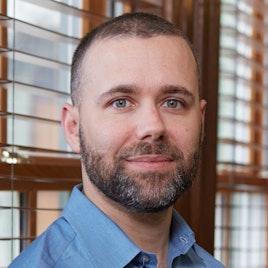Health Funders and Grantees: Who Sets the Agenda?
By Jonathan Cohen

On a gritty street in Mombasa, Kenya, the Muslim Education and Welfare Association (MEWA) offers a drop-in center for the city’s large population of people injecting heroin. Like similar organizations in Mombasa, such as the Reachout Center Trust, MEWA is largely staffed by women and men whose family or friends are affected by illicit drugs. Outreach workers, many of them current or former users, offer clean needles, information about treatment and rehabilitation, and HIV counseling and testing.
Groups like these, established with the modest ambition of alleviating suffering in their communities, now receive funding from major global health initiatives such as the Global Fund to Fight AIDS, Tuberculosis, and Malaria and the President’s Emergency Plan for AIDS Relief (PEPFAR). These funders have wide-ranging goals that they are unlikely to reach without the participation of small organizations like MEWA and Reachout, which can find patients in the city’s hidden drug “hot spots,” engage them in services, accompany them to hospital, and offer them a means of disease prevention. In exchange, these organizations may receive modest grants to pay stipends for outreach workers, purchase supplies, and cover some core costs.
The relationship between these global health initiatives and local community groups sounds like a win–win—and in some cases, it is. Support from the Global Fund and PEPFAR has helped transform some community-based organizations into thriving enterprises covering much bigger catchment areas and vastly improving the sophistication and impact of their services.
But it is rarely that simple. Visiting MEWA recently, my colleagues and I found its workers struggling for cash despite being a partner of the multibillion-dollar Global Fund. Outreach workers earn a poverty-level monthly stipend of 3,000 Kenyan shillings (about US$30), which often goes to helping clients pay for incidental health costs, like bandages or a ride to the hospital.
Why the Global Fund does not pay them more is a complicated question. Salaries may be set based on standards that work in one country but not another. Incidental expenses may not be permitted in a budget focused on preventing specific diseases. Intermediaries who manage the Global Fund’s grants—typically large AIDS service providers in the capital—use up a lot of the available funds on overhead and administrative costs.
Whatever the reason, the result is the same. “If the hospital charges your client for bandages and you have fifty shillings in your pocket, you’re going to pay for it,” a colleague observed.
A day earlier in Nairobi, a group of sex workers met with my colleagues and me to discuss a similar dilemma. Together with other key populations, they had formed a consortium to gain access to funding from the Global Fund.
Barely existent a decade ago, Kenya’s sex worker movement now has 75 chapters, small collectives of sex workers who look out for each other’s safety and welfare. For instance, sex workers text each other to warn about potentially violent clients or help each other lodge complaints about abusive police officers.
Such actions have not eliminated violence against sex workers, but they have vastly reduced it. In the border town of Busia, police used to routinely rape sex workers with impunity. Now they attend quarterly sensitivity meetings, and the mayor’s wife recently donated a box of condoms to the local sex worker collective.
So when the Global Fund announced an initiative to reduce violence against sex workers, naturally these groups sought funding. Their members had a proven track record of preventing violence through collective action, and they hoped that becoming a partner of the Global Fund would help cover basic costs.
“The Global Fund supposedly has money for violence prevention, and here we are paying for lawyers out of our own pockets,” said the head of a male sex worker organization, HOYMAS, which is part of the Kenyan Sex Worker Alliance (KESWA).
He had a point. The problem, as we learned from MEWA, is that even with a Global Fund grant going to a large AIDS organization in the capital, outreach workers on the front lines may still be forced to spend their own money on basic needs.
This reveals a potential gap between the goals of global health institutions and those doing outreach to or working with local communities. Groups like MEWA, Reachout, KESWA, and HOYMAS exist primarily to help vulnerable people. This may include providing a drop-in center, rushing to the police station when someone is assaulted or arrested, or simply providing comfort to a peer—ad hoc efforts that may not be covered by funding.
Such groups, serving populations who are deeply marginalized and criminalized, don’t measure their impact strictly in terms of HIV infections averted or treated. Yet in a strange coincidence, they have become essential partners to those who do.
This is not necessarily a bad thing. Over the years, the Open Society Foundations have helped many community-based organizations pilot key HIV and legal services, and gain access to more funds from the likes of the Global Fund and PEPFAR. We have argued vociferously that this money should benefit those who are working on the front lines of the AIDS epidemic, and that mobilizing communities is precisely what will stem the HIV pandemic and, in the longer term, sustain civil society.
But communities are not instruments of their donors. Their needs existed long before global health institutions and private foundations came along, and they will exist long afterwards. The problems of poverty, criminalization, and structural violence that they face are not going to be solved by narrowly defined funding flows.
For that, communities need donors who are committed to long-term insoluble problems and to keeping their lens wide. This means being flexible with how grantees use their funds, learning from them how best to support communities, and promoting their vision of local solidarity.

Until November 2021, Jonathan Cohen was the director of the Open Society Public Health Program.